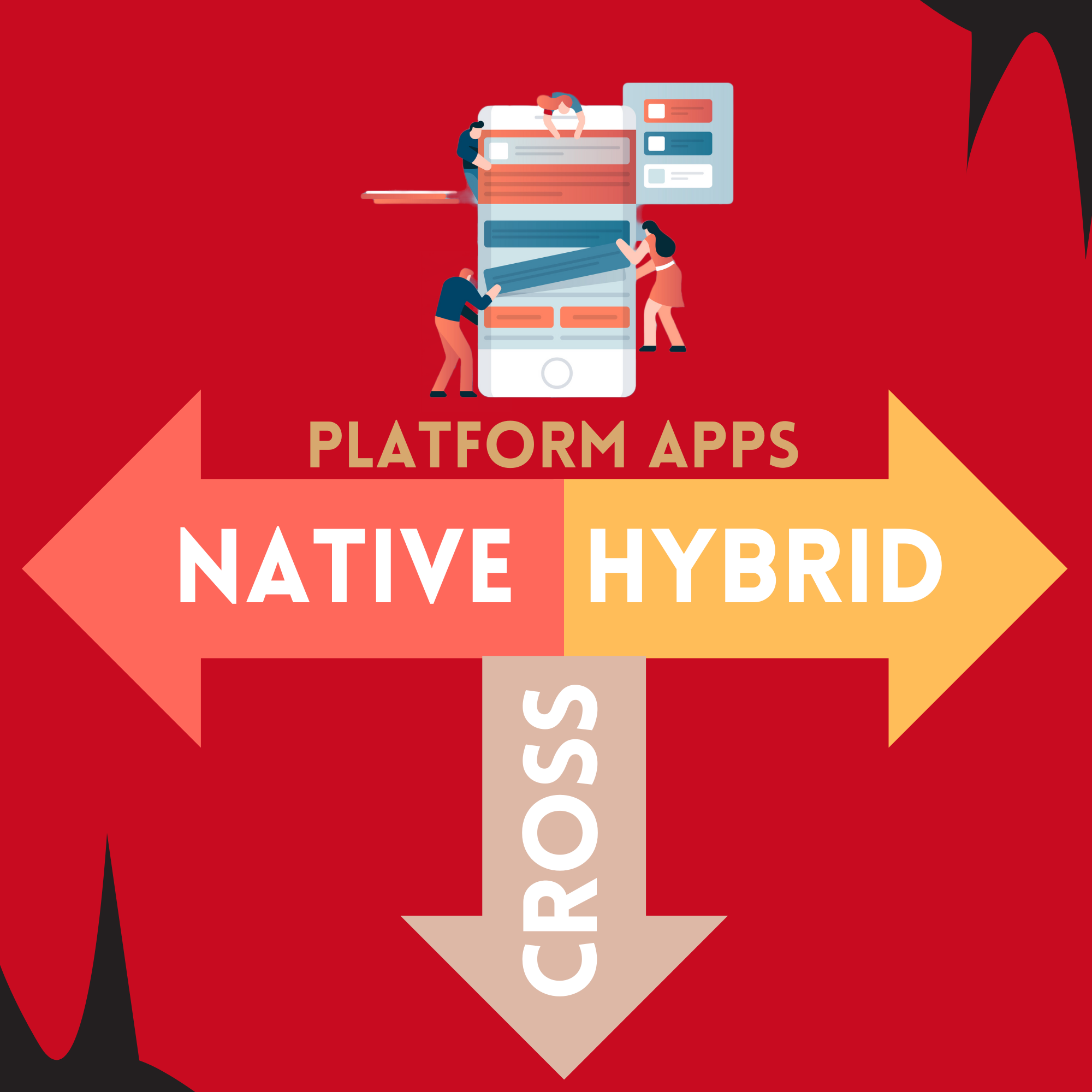Native, Cross and Hybrid are three technology platforms that possess many great advantages. These are the types of platform apps that are highly appreciated on mobile platforms and can offer the best support for selling or doing business over the internet. Although serving the same mobile field, there are still differences between these applications. In this article, we would like to give a comparison between Native vs Hybrid vs Cross platform app examples.
Overview of Native vs Hybrid vs Cross platform app
Native
Native App, as the name implies, is understood as a native application. This is a type of application created from the original programming language.
Native App possesses many outstanding advantages that other types of mobile applications cannot have. It works faster, more efficiently, and is more durable than other types of apps and there are very few errors. This is an application created for a single operating system and it provides the best user experience because the app maintains the user interface design on each operating system.
However, businesses should note that Native App works only for operating systems with multiple versions. Besides, the process of warranty, maintenance, or upgrade of a Native App is quite time-consuming and the cost of building this app is high along with the need to maintain many versions of the application.
Native app development is the process of developing apps or software that need to be run on specific devices and mobile app platforms like Android and iOS. This development is ideal when businesses want to deliver maximum user experience in terms of the look and feel of the application. Some well-known native apps are Google Maps, Artsy, Pinterest, and Spotify.
Hybrid
Hybrid is an application built on popular web technologies such as HTML, CSS, and JavaScript. Hybrid is used by developers and put up on platforms like App Store and CH Play and is currently receiving a lot of attention from the user community.
Hybrid App is compatible with many different devices. Therefore, it is used to save costs and optimize work. For this application, users only need to make changes or adjustments on an app, then the entire operating system will also have a relative change. This is an application that inherits the strengths of the Mobile app and the Native app along with many outstanding features provided, allowing users to have the best user experience. However, the running speed of the Hybrid app is not really smooth, so it also affects the quality of the user experience.
Some of the famous hybrid application development frameworks are Ionic and Apache Cordova.
Cross
How about Cross Platform app examples? Cross platform app is a term for computer software and computing methods. This application has 2 categories. One type needs to design and compile each version for the platform it supports, and the other can run on any platform directly without any special preparation.
These app examples are being chosen by many programmers because it has many advantages. It saves a lot of time and effort because only a single code can be used on many different platforms. Besides, these apps allow users to carry out large, flexible and diverse projects. However, the Cross Platform app examples when used will not be able to exploit the libraries of major platforms such as Android and iOS. In addition, the licensing process for Cross Platform App technology is quite complicated.
Popular app examples are React Native, Xamarin, and Flutter.
Which one to choose?
To come to a decision on which platform to use, users must understand the differences between each of these applications. While Native apps are written in one programming language and are only used for a single operating system, Cross Platforms are applications that can be written in any programming language. However, these often pass through an intermediate code and are compiled into other languages, so it is used for cross-platform use. In addition, the Hybrid app is an application built on 3 combined platforms. This is an application with a device-compatible framework and the core is the activity of the website.
Each application has a different ability, so businesses need to base on demand factors and performance factors to make a choice. If your business is looking for a mobile application with high flexibility and the capability of working on many different platforms, then Cross Platform app examples are a great choice that best meets your business needs. As for the performance, Native App brings high efficiency, capable of exploiting all the maximum resources of the operating system but it takes quite a lot of time and effort with a higher cost. Meanwhile, Hybrid and Cross Platform app examples are somewhat more cost-effective. Enterprises need to base themselves on the company’s finances to have an effective and economical option.
Conclusion
Native App, Hybrid, and Cross Platform app examples come to users with many practical benefits. These applications offer good support for the user experience. If you need association with these apps, contact us.




